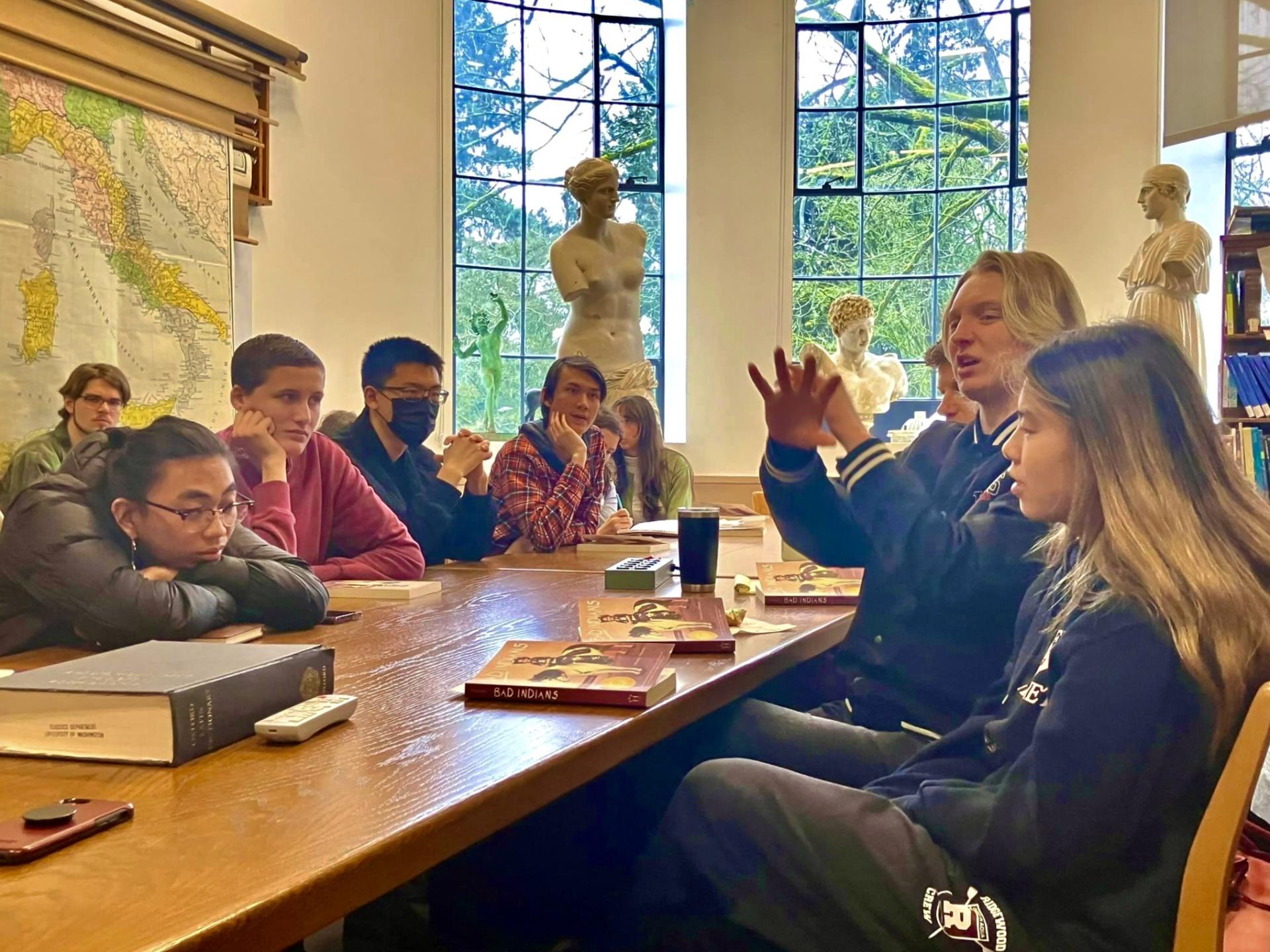Humanities 102 and 103

Students who complete Humanities 101 in the Fall have priority access to Humanities 102, offered only in the Winter, and Humanities 103, offered only in the Spring. These are small, 2-credit seminar classes that meet one day a week and count towards your “Social Sciences” general education requirement. Both courses are graded as “Credit / No Credit.”
These courses center the Indigenous Peoples of the west coast and the Asian American communities of Puget Sound, and we focus on the complex question: what are stories, who gets to control them, and how are they adapted to the intended audience?
Both courses include field trips around the region and guest visitors who talk about their experiences with storytelling.
In Humanities 102 (Campus Connections) we will be reading the hybrid memoir Bad Indians: A Tribal Memoir by Deborah Miranda. We will take a field trip the The Burke Museum on the UW campus to consider the curation of Indigenous artifacts on a campus situated on unceded Indigenous land. In past years, visitors to class have included Deborah Miranda herself.
In Humanities 103 (Community Connections) we will be reading the novel No-No Boy by John Okada, and the graphic novel We Hereby Refuse: Japanese American Resistance to Wartime Incarceration by Frank Abe and Tamiko Nimura. No-No Boy is set in Seattle, and the stories of We Hereby Refuse are set variously in Seattle and California. Sarah Leibovitz, Supervising Producer of Soundside for KUOW public radio, will visit our class to talk about local journalism, storytelling, and her own career path. We will take four Saturday field trips which include the Seattle Asian Art Museum, Chinatown-International District, the Duwamish Longhouse and Cultural Center, Kubota Garden, and—as we take a ferry across the Sound—the Suquamish Museum on the Port Madison Indian Reservation and the Bainbridge Island Japanese American Exclusion Memorial.
All entry fees are covered by the program; in the Spring quarter, all transportation and lunches are covered by the program. To learn more about Humanities First field trips click here.
Student Workload each quarter
- Continued building of the personal website you launched in the Fall, telling the story of your own first-year journey and produced for an audience of future employers and internship directors;
- Continued work on collaborative public digital projects conveying the themes of our books and field trips to a wider public audience
Students who complete all three courses in the Humanities First sequence earn the designation “Humanities First Scholar” and will be presented with certification of this honor by the Dean of the Division of Humanities and the Program Director.
Still curious about Humanities First? Check out our Previous Years page for our past themes, speakers and field trip destinations.